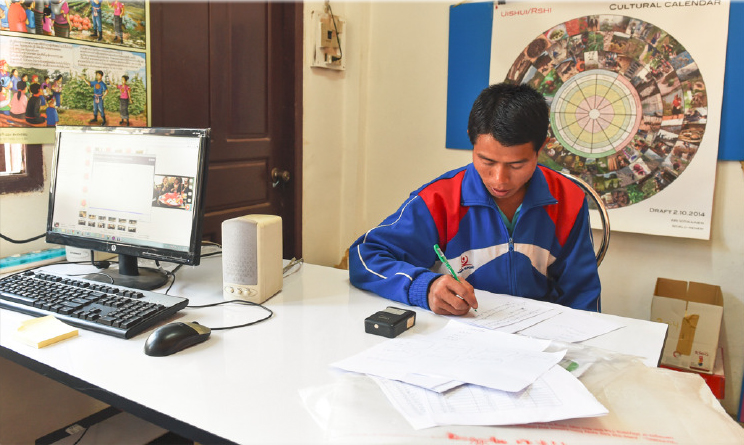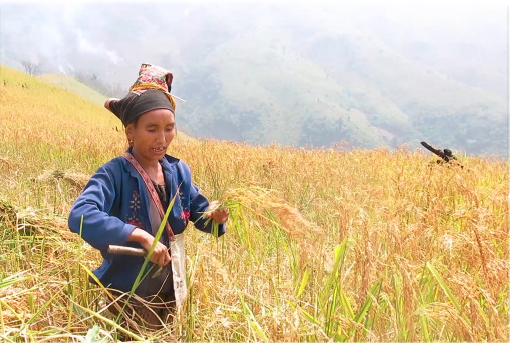He had to stop his studies due to family responsibilities, and later he was told by the district officials that he was already too old to be approved to continue his studies to become a teacher.
World Renew saw the potential of Te Keo when he was working in his village as the non-formal education teacher, and in other volunteer roles in his community. In the fall of 2014, Te Keo was then hired by World Renew to help with the new preschool project that is being implemented in Rshi villages.
Despite minimal formal education, Te Keo has proved to be an outstanding development worker.
With World Renew, Te Keo has had an opportunity to learn many new skills. He has learned to use a camera to take pictures and videos to help produce culturally relevant education materials. He has also received training to use a computer for desktop publishing and video editing. Within just five months, he was able to learn basic computer skills. He has already started to apply these skills in his material production work. He has prepared culturally relevant children’s picture booklets, and has taken video footage about the traditional art forms during the Rshi New Year festivities. For the New Year video, he composed an introductory speech encouraging Rshi elders to pass on their unique traditional art forms to the next generation in order to ensure that the special aspects of the Rshi culture do not disappear.
When Te Keo presented the video he produced in Phialokao village, many villagers came to see it. After the viewing, the women’s group gathered the young women together, dressed them in traditional costumes, and young and old started practicing various dances and songs together. It was exciting to see how young people were eager to learn from their elders. Children were seen taking videos of the songs and dances on their telephones and showing and sharing with others. Earlier, we had learned that the older generation was not teaching the cultural dances. This was because they thought the younger generation was not interested. Children did not dare to ask to be taught.
The morning following the viewing and dance practice, one of the elders told Te Keo: “I do not want to die yet, because there is still so much to teach to these young people and I want to see that our culture is passed on.” Another of Te Keo’s ideas was to encourage a very poor woman from his village to sing a harvest song on video while she was harvesting rice. So he actually hired her to help with his own rice harvest so he could take the video while she sang as she harvested the rice (pictured above). When Te Keo presented the video with the beautiful song to other villagers, they were very impressed, and noone could believe that the poor woman could sing so well. Te Keo told us that through this video he wanted to challenge the common belief that the poorest people are not capable of special skills or achievements.
We are excited to see how Te Keo has started to develop his own vision for strengthening his community. Despite minimal formal education and training, he has proved to be an outstanding development worker. He knows the resources in his community well. He knows what his people value, and has the skills to communicate effectively and motivate them to accomplish their goals. We hope to see and mentor more and more people from our project areas taking this kind of active and leading role in developing their own communities.
Ari Vitikainen
*Name changed for security reasons.
**Feature photo: Phialokao villagers come together to see Te Keo’s video about the traditional Rshi songs, dances and games.



